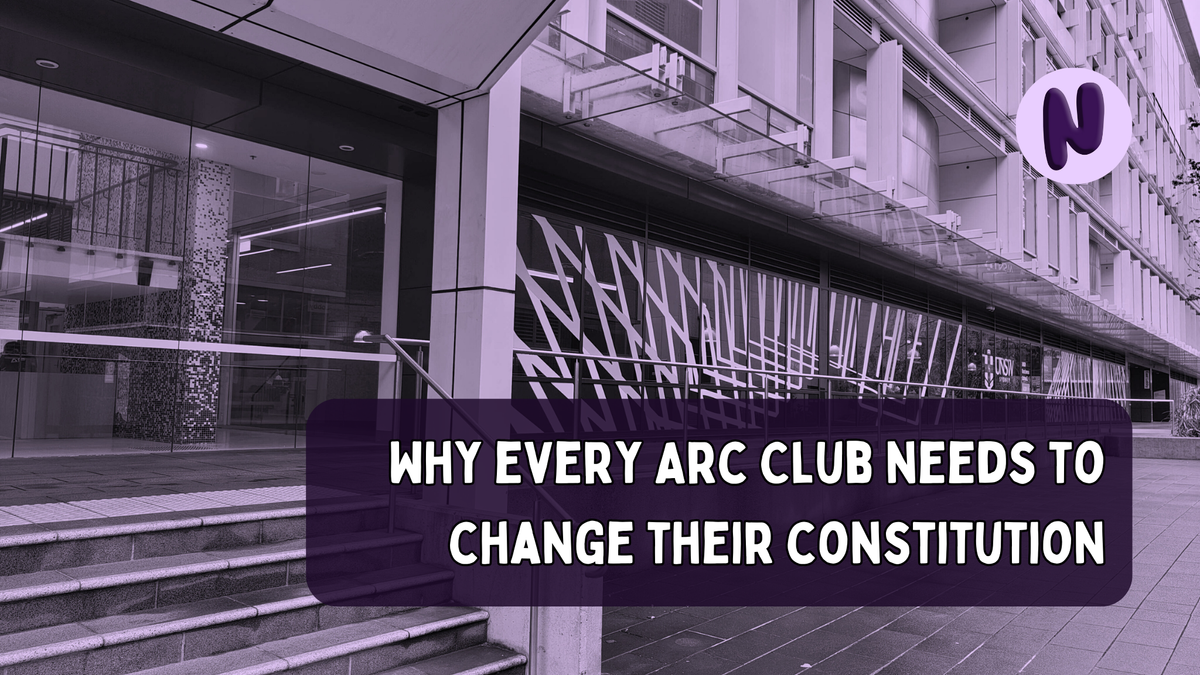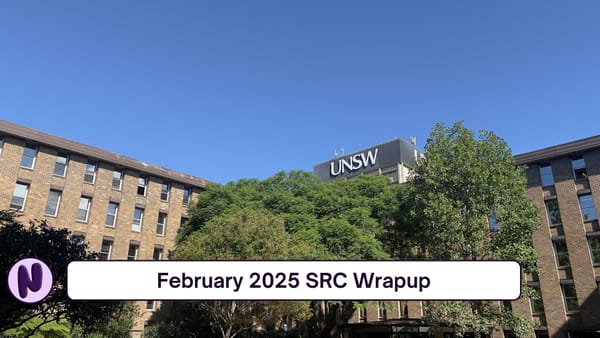Why every Arc Club needs to change their constitution
All clubs will have to make constitutional changes to meet new Arc clubs policy.

Arc Clubs have recently published an updated version of the Arc Clubs policy, the policy document that governs clubs affiliated with Arc, laying out requirements and rules that clubs have to follow to stay affiliated with and receive grant money from Arc. The new version comes with a variety of changes to these requirements and rules, meaning all clubs will have to make changes to their constitutions and the way they run certain meetings and events to continue their affiliation.
One of the main changes are those to general meetings. Clubs must now send out notice fourteen days prior to the meeting, up from the previous seven days.
If an election is to be held at this meeting, the fourteen day notice will include the contact information of the new returning officer for nominees to send their nominations. Notably, election nominations will now close seven days prior to an election, whereas previously one could nominate themselves for a position mere minutes before the election in many clubs.
Another change to general meetings is the change to how quorum is met. All general meetings require a certain number of people in attendance before the meeting can start; 10 members or 50% of members, whichever is less, for clubs newer than 18 months or who have less than 75 members, or 15 members for all other clubs. It is worth noting that this is the minimum requirement, and clubs may set out a higher quorum in their constitution should they desire. Previously, club executives have counted towards the number of members in attendance, however, the new policy restricts quorum to only members who did not hold executive positions in the past year.
Another change affecting elections is the new mandatory role of the returning officer. Returning officers run elections and help ensure election integrity. These officers will be appointed by the outgoing executive at least fourteen days before the election and must be determined to be impartial with no real or perceived bias or conflicts of interest. They do not have to be former executive officers.
The new policy also brings a new mandatory role, the Welfare Officer. The Welfare Officer combines the former roles of Grievance officer and EDI officer, and their responsibilities include fostering an inclusive culture within the club, ensure events do not lead to “poor wellbeing outcomes”, and to receive and act upon any grievances around the club.
While the addition of the Welfare Officer role has garnered the largest amount of attention, there are two additional changes to the executive structure which are notably absent from the webpage of the listed changes.
The first one of these is that the roles of Secretary and Arc Delegate have now been merged, all of which are now responsibilities of the Secretary. It is not uncommon for clubs to have one person administering both roles, or even already formally mandating the change in their own constitution. The name SArcretary was offered to them, but was not acted upon.
The other major change is the addition of a recommended Vice-President role. The draft constitution sets out the roles of the Vice-President to mainly assist and take secondary responsibilities to ensure the smooth running and operation of the club, and its executive. While the role itself is not required, the responsibilities of the Vice-President role are required to exist in the executive, whether through a Vice-President or other executive roles.
A minor addition that all clubs will have to make to their club constitutions is the introduction of a not-for-profit clause. In 2021 the federal government made changes around the self-assessment for income tax exemption for not-for-profit entities, this change in clubs constitution is in line with these new federal changes.
Another big change is the introduction of a Clubs Tribunal, a panel that grievance appeals can be raised to if an individual feels that they were unfairly punished for a grievance by a club. Five students will form this panel and will be randomly selected from a pool of former grievance and welfare officers who have nominated themselves for membership. When an appeal is raised, the tribunal may conduct additional investigations and will review the evidence that led to the original decision in order to determine if they will uphold the original decision, dismiss the original decision, change the penalty of the original decision, order the club to do a new investigation, refer misconduct to UNSW Conduct and Integrity or report an incident to the police if there is evidence of a crime. The tribunal will make decisions by majority vote and all decisions will be final.
In addition to many mandatory changes, Arc Clubs have also included some recommended changes, which include the ability for the executive team to remove absent executives without needing to hold an EGM, allowing interim executives to be appointed, and having incoming executives start their roles at the end of t
Clubs will have to make these changes before they apply for reaffiliation during term 3. The new requirements will not come into effect until after the AGM or EGM where the constitutional changes are passed.
You can view the new Arc Clubs Policy here to review all the new changes.




